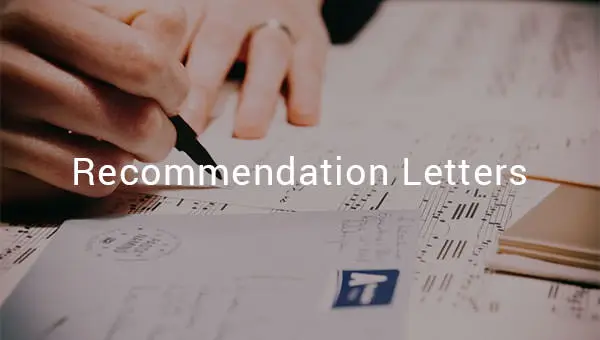10 Mistakes to Avoid When Writing a Letter of Recommendation for a Friend
When writing a letter of recommendation for a friend, it is important to avoid certain common pitfalls that can compromise the effectiveness of the letter. A well-written letter of recommendation can be a powerful tool in helping your friend achieve their goals, whether it is getting accepted into a school, landing a job, or earning a scholarship. However, if you are not careful, your letter can also unintentionally harm your friend’s chances. In this article, we will discuss what to avoid when writing a letter of recommendation for a friend to help you create a compelling and effective letter.

See 10 Mistakes to Avoid When Writing a Letter of Recommendation for a Friend
1. Avoid Exaggeration or Overstatement
One of the most common mistakes people make when writing a letter of recommendation is to exaggerate the abilities, skills, or accomplishments of the person they are recommending. While you may have the best intentions, this can actually hurt your friend’s chances in the long run. If the letter is too glowing, it can come across as insincere or even unrealistic. Moreover, if the person who reads the letter gets the impression that you are exaggerating, it can make your friend look bad and compromise their credibility.
2. Avoid Bias or Conflict of Interest
Another common mistake to avoid when writing a letter of recommendation for a friend is to show bias or conflict of interest. It is important, to be honest, and impartial in your assessment of your friend’s abilities and qualifications. If you are overly biased, it can make the letter look like favoritism, which can compromise the objectivity of the selection process. Additionally, if there is a conflict of interest, such as if you are related to or have a close personal relationship with the person you are recommending, it is essential to disclose this information upfront.
3. Avoid Being Too Vague
When writing a letter of recommendation, it is important to be specific and provide concrete examples of your friend’s skills, accomplishments, and character traits. Avoid using generic or vague language, such as “hardworking” or “friendly.” Instead, provide specific examples that illustrate these qualities. For example, you might say, “John consistently put in extra hours to meet project deadlines and was instrumental in the successful completion of several critical projects.”
4. Avoid Omitting Key Information
It is important to include all the relevant information in the letter of recommendation, including the duration of your relationship with your friend, your friend’s qualifications, accomplishments, and the context in which you worked with them. Leaving out important information can lead to ambiguity and make your letter less persuasive. You want to provide a comprehensive picture of your friend’s abilities and qualifications so that the reader can make an informed decision.
5. Avoid Grammatical and Spelling Errors
Finally, it is important to proofread your letter of recommendation carefully before submitting it. Grammatical and spelling errors can make the letter look unprofessional and sloppy. Take the time to review your letter several times and have someone else read it as well to catch any mistakes you may have missed.
6. Avoid Using Jargon or Slang
It is important to avoid using jargon or slang in your letter of recommendation, especially if the reader may not be familiar with it. This can make your letter difficult to understand and undermine your friend’s credibility. Use clear and concise language that anyone can understand.
7. Avoid Being Too Brief or Generic
While it is important to avoid being too vague, it is equally important to avoid being too brief or generic in your letter of recommendation. Take the time to provide specific examples and details that support your friend’s qualifications and accomplishments. A generic letter that could apply to anyone is unlikely to make a strong impression.
8. Avoid Making Negative Comments
Even if you have some reservations or criticisms about your friend’s performance, it is best to avoid making negative comments in your letter of recommendation. Focus on the positive aspects of their qualifications and accomplishments, and avoid anything that could be perceived as criticism or negativity.
9. Avoid Focusing Too Much on Personal Details
While it can be tempting to include personal details about your friend, such as their hobbies or personal interests, it is important to remember that the letter of recommendation should focus on their professional qualifications and accomplishments. Personal details may be irrelevant or even detract from the letter’s overall effectiveness.
10. Avoid Writing an Overly Long Letter
Finally, it is important to avoid writing an overly long letter of recommendation. While you want to provide enough information to support your friend’s qualifications and accomplishments, you don’t want to overwhelm the reader with unnecessary details. Keep the letter concise and to the point.
Conclusion
writing a letter of recommendation for a friend can be a powerful way to help them achieve their goals. However, it is essential to avoid common mistakes that can compromise the effectiveness of the letter. By avoiding exaggeration or overstatement, bias or conflict of interest, vagueness, omissions, and grammatical and spelling errors, you can create a compelling and effective letter of recommendation that will help your friend stand out from the competition.





